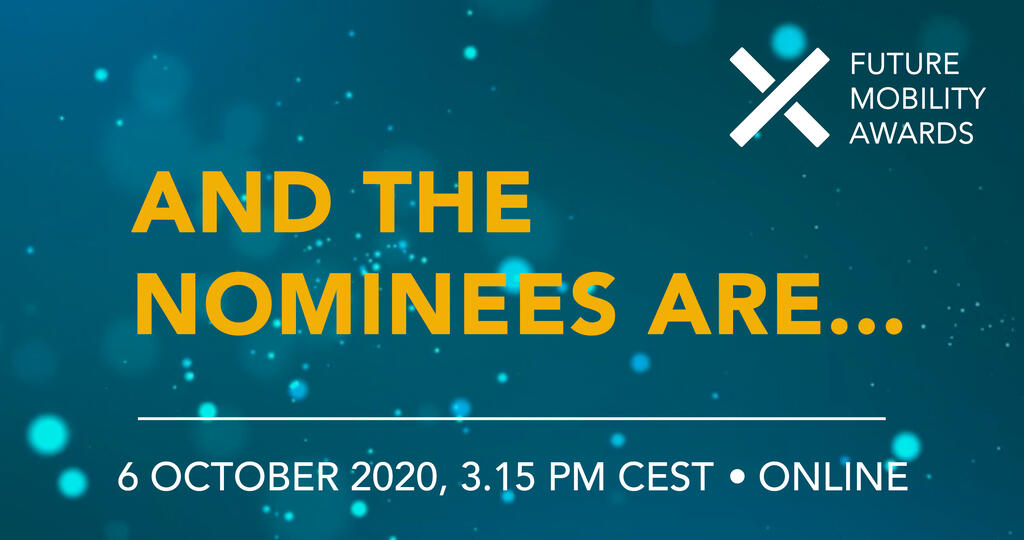
And the nominees for the Future Mobility Awards are…
The ceremony for the Future Mobility Awards takes place October 6th where the winners for each category will be announced and recognized for having a positive impact on the future of mobility. The Future Mobility Awards are created and hosted by MobilityXlab in collaboration with MathWorks. And the nominees are…

The Future Mobility Awards are divided into four different categories; Sustainability, Connectivity, AI for Safety and Virtual Development and the interest has been world-wide.
"It’s a great honor to win the first ever future mobility awards by MobilityXLab. We are confident that winning this award would provide tremendous value for us as a young startup - bridging the reputation gap is an important step towards working with corporates, this award does exactly that", says Uriel Eldan, VP Business Development SiaSearch.
"The amount of applicants have both delighted and impressed us. We have had startups from 18 countries on 6 continents apply. Now, after a tough evaluation process we have two nominated startups within every category from 6 nations", says Katarina Brud, Director MobilityXlab.
The Future Mobility Awards recognizes startups and scaleups bringing the best new innovations to the industry. The need to innovate is more important than ever and all entrants to the Future Mobility Award have the potential to make a great impact and difference for the modern world as well as future mobility.
The winners will be awarded with recognition, a monetary reward and exclusive coaching sessions from industry leaders.
The winning startups will be chosen by Award Committee:
- Anna Westerberg, Senior Vice President - Volvo Group Connected Solutions,
- Mats Moberg, Senior VP of R&D at Volvo Cars,
- Chris Hayhurst, lead of MathWorks Consulting Services Europe,
- Nishant Batra, CTO and EVP Technology, Product and Strategy of Veoneer,
- Kiva Allgood, VP IoT of Ericsson and Erik Coelingh, Technology Advisory at Zenseact (former Zenuity).
The winners announcement will be made on October 6th, at the ceremony for the Future Mobility Awards, starting online at 3.15pm CEST. The event is open for the public to attend online: register here.
The nominees within the respective categories are...
Sustainability:
Teraloop, Finland
Teraloop is a sustainability-driven startup developing scalable kinetic energy storage, to help optimize generation, distribution and consumption of electrical power. In the mobility sector, Teraloop's innovative flywheel solution provides efficient and powerful energy storage to help solving the infrastructure problems hampering the global EV uptake. Through the deployment of the Teraloop solution, expensive infrastructure upgrades needed to charge EVs can be avoided, thus making EV-charging viable also at remote locations. By increasing charger availability and convenience, more drivers will be convinced to switch to EVs.
Celcibus, Sweden
Celcibus catalyses the transition to fossil-free generation of electricity. Solar and wind power cannot be generated when needed, so in order to deploy more renewable resources, the need for energy storage is growing rapidly. The best large-scale storage option is to use electricity to convert water into hydrogen and store the hydrogen as a gas. When the energy is needed, the hydrogen can be converted back into electricity in a fuel cell, with water as the only exhaust.
The heart of the fuel cell is the Membrane Electrode Assembly (MEA), which includes catalysts, a membrane and gas distribution layers. The MEA is currently expensive, and contains noble metals like platinum. Celcibus provides a catalyst and MEA without the need for noble metals, which results in cheaper and more sustainable fuel cells. Wide-spread usage of fuel cells for transportation, for distributed heat and power generation for buildings, as well as for back-up or seasonal energy will thus enable a faster transition to a grid with more renewable energy sources.
AI for Safety:
Reality AI, USA
Autonomous vehicle sensing approaches are traditionally heavily focused on the visual. Even non-image sensing modalities usually rely on computer vision techniques. But there are other senses too, and human drivers rely on them. They hear the sound of the vehicle, the road, and their surroundings. They feel how the car moves. A squeak or a shimmy is often their first hint that something is wrong. Reality AI brings these other senses into play. Reality AI's automotive sound detection and localization solution provides vehicles with a "sense of hearing": enabling non-line of sight applications such as seeing around corners or blind intersections with sound, or identifying approaching emergency vehicles and their direction of movement; thus allowing for appropriate mitigation by the driver, human or autonomous.
SafeMode, Israel
SafeMode offers behavior-based software to help fleet operators become profitable and safer by engaging and rewarding their drivers. It revolutionized fleets and drivers' relationships by shifting the focus to the driver with incentives, compensations, and recognition for proper driving style.
Connectivity:
Enervibe, Israel & USA
Since 2018 Enervibe is developing Kinetic Energy harvesters (KEH) devices and power management circuits that convert ambient mechanical energy into DC electrical power.
The KEH enables solutions and applications from different industries, and Enervibe uses its edge to develop a comprehensive Tire monitoring system based on its proprietary self-powered in-tire multi-sensor module.
CloudBackend, Sweden
CloudBackend is building the cloud language of future mobility enabling data and applications to securely roam globally with the travellers and vehicles bringing the ultimate connected experience to us all.
Virtual Development:
SiaSearch, Germany
Most mobility companies will delay or not succeed in deploying crucial ML based functions for automated driving because up to 75% of key engineering time is spent on manual and repetitive search, selection and understanding of raw sensor data.
SiaSearch introduces programmatically extracted metadata and a novel database to enable full semantic search on massive data lakes and streaming data.
They provide fast, contextual data access and in-depth understanding to build better models in less time.
CEMWorks, Canada
The continuing evolution of automotive technology aims to deliver connected vehicles with the potential to remove human error from the driving equation to protect the broader transportation ecosystem.
CEMWorks is working to deliver robust simulation solutions to characterize large-sized problems at GHz frequencies for simulating connected vehicles in smart cities to accelerate the pace of design, implementation, and testing of new Smart Mobility applications. Their simulation solutions will contribute to a dramatic improvement in safety, shortened time to market, and reduced project costs. Just as important, our simulation tool will help manage signals and interferences emitted by targets in the environment such as other vehicles and landmarks, thereby improving the safety and reliability of connected vehicles.
Simply put, the CEMWorks simulation tool will enable OEMs and Tier 1 suppliers to deliver quality connected vehicles with superior safety and performance profiles.

